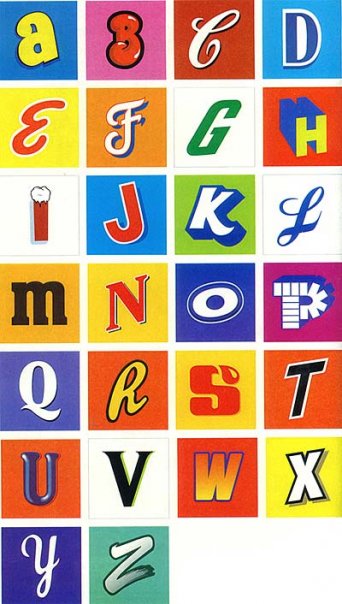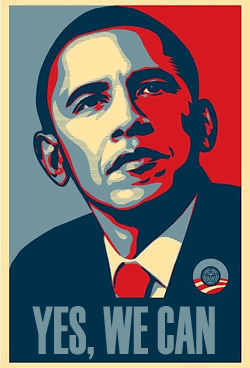We all knew, from the day he burst on the scene, that Barack Obama is a great talker. And great talk can sometimes accomplish a lot. But there’s a reason why we talk about “walking the walk.” And, for better or worse (mostly worse), George Bush appears to be the better walker. (Maybe Obama could ask to borrow Bush’s middle name.)
Case in point: the Armenian genocide. (We’ll get to more “topical” issues involving Obama’s fine talk and wobbly walk in a subsequent post.) We can imagine why Obama merely alluded elliptically to the genocide while speaking to the Turkish parliament recently, and sidestepped a direct question at a photo op by saying his “views are on the record.” Maybe he thought it impolite to restate them in those venues. True, it would have given a tiny bit of encouragement to brave Turks who risk jail and worse for talking openly about it, but as the leader of a country with deep and twisty entanglements of mutual self-interest vis-à-vis Turkey, it was prudently ingratiating perhaps to keep mum about it while on Turkish soil.
On April 24, 2009, back in the USA, Obama chose to commemorate “one of the great atrocities of the 20th century,” in which “1.5 million Armenians [were] massacred or marched to their death in the final days of the Ottoman Empire.” He used an Armenian phrase—Meds Yeghern—in referring to it, and he called for “a full, frank and just acknowledgment of the facts.”
Obama seems to intend to imply that meds yeghern means “great atrocity.” The “great atrocity” is the continued Turkish denial that a genocide took place, and that an American president chooses to refer to it in Armenian rather than plain English. As Harut Sassounian writes in “Et tu, Obama? Letter from a Former Admirer”:
You may want to know that “Meds Yeghern” does not mean genocide; it means “Great Calamity.” Armenians used that term before the word “genocide” was coined by Raphael Lemkin in the 1940’s. “Genocide” in Armenian is “Tseghasbanoutyoun,” which is a much more precise term than “Meds Yeghern,” in case you decide to use it in the future.
Not only did your aides come up with the wrong Armenian word, but they failed to provide its English translation, so that non-Armenians could understand its meaning. What was, after all, the point of using an Armenian word in an English text? Did your staff run out of English euphemisms for genocide?
It just so happens meds yeghern fits nicely with the official Turkish position that the murder and death marches “just happened”—that a big war was going on and everyone suffered, Armenians and Turks alike. Sorry, a government-run genocide doesn’t just happen. And there can be no doubt, unless you have been paid off, that it did happen.
The ABC News blog Political Punch has collected some of Obama’s previous remarks on the genocide. Most compelling is his July 28, 2006, letter to Secretary of State Condoleezza Rice, protesting her decision to recall the US ambassador to Turkey for letting slip the G-word:
“That the invocation of a historical fact by a State Department employee could constitute an act of insubordination is deeply troubling,” then-Sen. Obama wrote. “When State Department instructions are such that an ambassador must engage in strained reasoning—or even an outright falsehood—that defies of common sense interpretation of events in order to follow orders, then it is time to revisit the State Department’s policy guidance on that issue.”
Obama told Secretary Rice that the “occurrence of the Armenian genocide in 1915 is not an ‘allegation,’ a ‘personal opinion,’ or a ‘point of view.’ Supported by an overwhelmingly amount of historical evidence, it is a widely documented fact.”
Well put.
Obama has had plenty more to say on the subject, often to audiences filled with Armenian Americans, who voted heavily for him in 2008. As reported by Political Punch:
Mr. Obama said that “America deserves a leader who speaks truthfully about the Armenian Genocide and responds forcefully to all genocides. I intend to be that president.”
In a January 2008 letter to the Armenian Reporter, Mr. Obama said he shared “with Armenian Americans—so many of whom are descended from genocide survivors—a principled commitment to commemorating and ending genocide. That starts with acknowledging the tragic instances of genocide in world history.”
Naturally, many Armenian Americans—and any person who thinks (1) words matter and (2) history not only matters, it isn’t even past—are disappointed. Others appear to be in shock: not a peep from my wife’s cousin in Colorado, an ardently voluble Obama supporter from the start. As for myself, I was never enchanted enough to be disenchanted. He’s an improvement—how much of an improvement remains to be seen.
The sound of crickets chirping from Yerevan after Obama’s statement on the 24th has led some to believe that his meds yeghern moment is part of a sophisticated bargaining strategy, as the US tries to broker an agreement between Armenia and Turkey that would normalize relations. Among other reasons, this is why I have put off commenting on this textbook example of how to go back on your word. And maybe the purported bargain will pay off. I tend to think it gives cover to the hardliners in Turkey and will not help heal the rift. But if it allows him to play hardball with Turkey in the background while playing patty-cake in public, it’s probably a small price to pay. The problem is, longstanding geopolitical thinking puts the ball and bat and bases (pun intended) and just about the whole playing field in Turkey’s hands, and Obama has shown no interest in slaying the beast of conventional wisdom in US foreign policy.



 As Thomas points out, the president is the country’s chief law enforcement officer. “Yes, we can enforce the laws of the United States,” Obama seems to say. “But we won’t.” The president has said he wants to look forward, not back. But law enforcement is retrospective by nature. He needs to do his job. That’s the real high ground—not that mush in the “
As Thomas points out, the president is the country’s chief law enforcement officer. “Yes, we can enforce the laws of the United States,” Obama seems to say. “But we won’t.” The president has said he wants to look forward, not back. But law enforcement is retrospective by nature. He needs to do his job. That’s the real high ground—not that mush in the “
